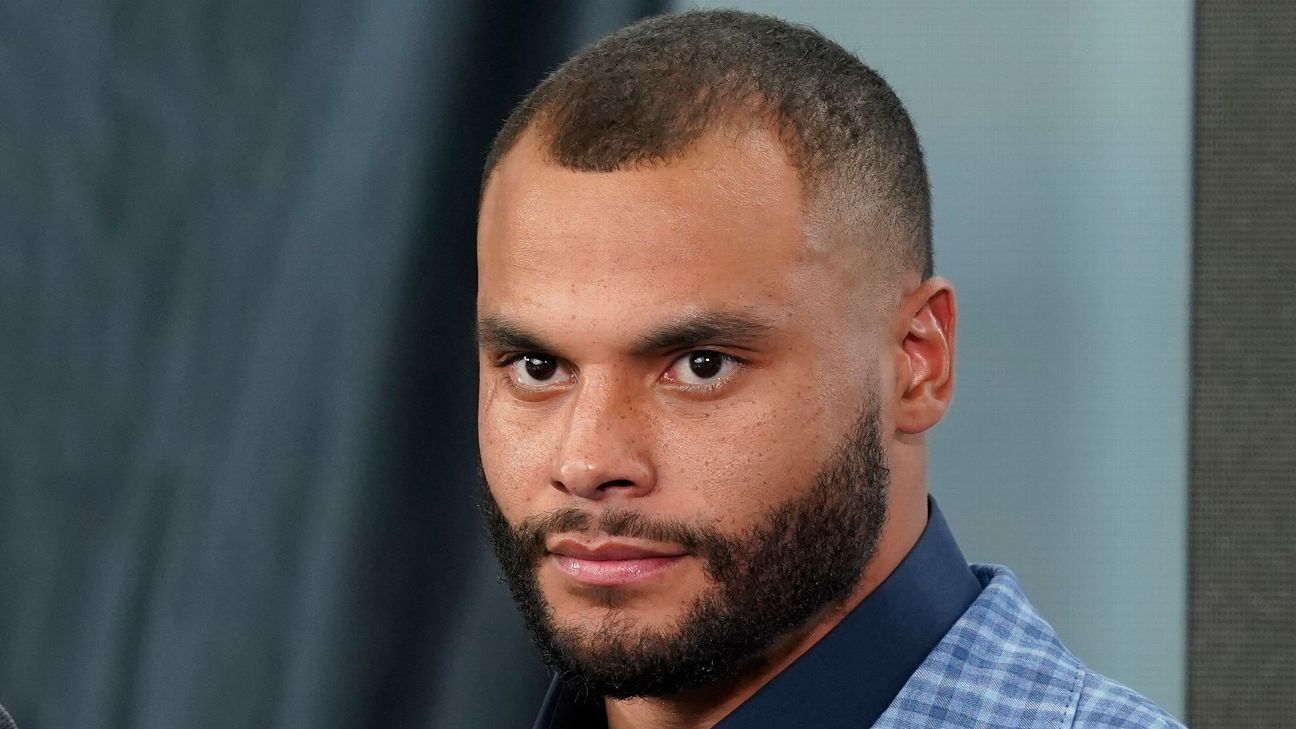FRISCO, Texas — Nothing was normal in Mike McCarthy’s first season as coach of the Dallas Cowboys.
Hired in January 2019, McCarthy was unable to have an in-person hello until the start of training camp because of the coronavirus pandemic. He was limited to Webex calls as he and his new coaching staff installed a new defense, special teams plans and slight variations to the offense.
The result was a disastrous 6-10 season that saw the Cowboys forced to play without quarterback Dak Prescott, offensive linemen Tyron Smith and La’el Collins, and many others because of injuries suffered in 2020.
As the Cowboys work through phase 3 of the offseason program with their organized team activities and three-day minicamp (June 8-10), things are feeling a bit more normal, with at least in-person practices if not full in-person meetings.
“I’m loving ‘normal,’ there’s no doubt about it,” McCarthy said. “It’s great to be out on the field with your players. It’s a lot of fun to see the coaches and you know how much time they put into the planning of practices, the drill work. … The energy in the building since Monday has kicked off has been on a whole different level. This is what we need. This is what I’ve always felt you did need, especially being a young team, especially being a team that’s new in a lot of phases.”
Watch them work 😤 pic.twitter.com/0dfKmyIyQ7
— Dallas Cowboys (@dallascowboys) May 26, 2021
While some teams have heeded the NFL Players Association’s advice to skip the voluntary portion of the offseason program, the Cowboys have had nearly all of their players involved since the beginning.
By the time the 2021 NFL season starts, the Cowboys expect to have an advantage over other teams in part because of the offseason attendance, although the return to health of Prescott, Smith and Collins should not be discounted.
“It’s going to be huge. It’s going to pay off,” Prescott said. “Obviously, the mental aspect, knowing the scheme, whether it’s the defense learning a new scheme or whether it’s the offense being on the same page and communicating better, I think it’s going to pay off huge when we get to training camp to have maybe that step that these other teams may not take during the offseason.”
Prescott and tight end Dalton Schultz, who is the Cowboys’ NFLPA rep, said there were not a lot of meetings among players to discuss skipping the offseason program. They held calls with the union to further understand the issue, according to Schultz.
“We realize we need this kind of work in the offseason,” Schultz said. “We support everything the NFLPA’s doing. We support all the guys that aren’t showing up. That’s a very personal decision for a lot of people. We’re a very young team, and we can benefit highly from this kind of work that we’re doing now.”
While there was not a negotiation with the players, McCarthy has shortened the offseason program. He is using six of the nine OTA days available under the collective bargaining agreement, and the minicamp is expected to be operated in the same manner as OTAs, which means shorter meeting times.
With defensive coordinator Dan Quinn installing a scheme that could have up to six new starters, time together on the field is important, even in a modified offseason. McCarthy has eight installation periods for the offense, defense and special teams to put together the fundamental principles of the schemes.
“I always look at the amount of work that I feel we need to get done at this time of year because the commitment that our football team has made up until this point has been tremendous,” McCarthy said. “I feel like the classroom, the virtual classroom work, we’ve really hit the target there. You can see that, especially in our rookie class, just the interaction as they joined in with the veterans last week. I think they transitioned fairly well.”
The pace of the OTAs is something he will monitor. Schultz said he thought the tempo during Tuesday’s workout was a little too much and said there needs to be a “work smarter, not harder” mentality.
“In the passing game stuff, I am all for full-speed tempo. I think you need that. You need the timing. You need the rhythm. You need to feel what a release feels like. You need to feel a press sometimes,” Schultz said. “But it’s always, as far as I know, it’s always been hard to simulate what the trenches actually feel like when nobody has pads. One guy’s going at a certain tempo, another guy’s going at a different tempo, and sometimes it’s not all cohesive. And I think that’s when practices get a little dangerous.”
As he works back from his right ankle injury, Prescott will be kept out of 11-on-11 drills. Smith and Collins, tight end Blake Jarwin (knee), wide receiver Amari Cooper (foot), linebacker Jaylon Smith (wrist) and defensive tackle Trysten Hill (knee) will be among the players kept off to the side or limited in their work as they lead up to training camp.
As much as the offseason is important, having the regulars ready for the start of training camp is more important.
“It’s the front end of a new transition, putting in a new program. We have a lot of changes from last year,” McCarthy said. “The commitment has been tremendous in phase 1 and phase 2. It really puts us in a really good place to accomplish and get all eight installations here for these three weeks.”
